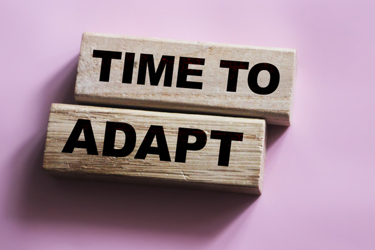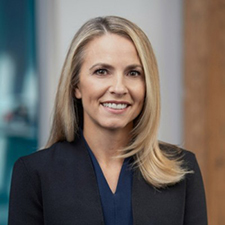Leaders Have An Appetite For Adaptability When Outsourcing

By Louis Garguilo, Chief Editor, Outsourced Pharma

In part one, we captured the first three of these five maxims for optimal drug development and manufacturing outsourcing success:
- Outsourcing is really about positioning your CDMO to your competitive advantage.
- Transfer the competitive advantages of your CDMOs to your organization.
- Guide from afar rather than drive from close range.
- Work hard at positioning your CDMO to form unified best-in-class solutions.
- For outsourcing collaborations to work, leaders must emerge.
These were created by Lisa Wyman, SVP Technical Operations, Acceleron Pharma, and Outsourced Pharma Editorial Advisory Board member.
Here we explore Wyman’s belief that leveraging the capabilities and capacities of CDMOs is first predicated on the drug sponsor’s appetite for adaptability and flexibility, and that is exhibited as a quality of leadership.
Ready, Set, Position
Wyman starts us out this second half of our discussion by referencing the opportunity for different approaches when meeting regulations and compliance standards.
However, if your expectations of the CDMO are so prescriptive you hinder their innovation, she says, you negate those potential accelerations of timelines and process improvements.
Better to maintain a tendency for flexibility, adjusting and adapting your internal processes to align or integrate well with the CDMO’s.
“Every CDMO you work with, or are contemplating hiring, should have state-of-the-art equipment/technology, capabilities, capacity, and quality systems,” explains Wyman.
“The question is: How do you effectively integrate those into the attributes of your own team and within your own organization?”
Her answer, practiced diligently at Acceleron she avers, is her fourth maxim:
Work hard at positioning your CDMO to form unified best-in-class solutions.
Naturally, this unification requires your CDMO to learn from the direction and data you are willing to provide. So it is a two-way street.
And the “flow,” if you will, is facilitated with an elevated use of what others might consider typical, technical reviews or project management conversations.

“We have transparent, open, and comprehensive dialogue on a routine basis,” she explains.
“CDMOs can provide insights on, for example, flexible chemistry, manufacturing, and controls – CMC strategies – and other solutions they can activate on their end, on our behalf.
“Currently,” she continues, “we have a clinical-stage program we’re looking to transition to more of a self-administered product.
“We’ve leveraged CDMO support for innovative life-cycle management solutions that enabled an injectable — administered today by healthcare providers — to become a patient-administered, combination device.”
Another example Wyman proffers is in the global quality and regulatory landscape.
Like Acceleron, small and midsize biopharmas in particular will have significant gaps with in-house support in this area.
A proactive conversation to position CDMOs, Wyman says, has bolstered her “end-to-end CMC strategy, contributed to reduced cycle times, and prompted innovation without a significant amount of capital or other expense.”
To my mind, this portion of the “Wyman Way” suggests an interesting course of what we might call “reverse-positioning psychology.”
That is to say, Big Pharma — with many programs to outsource and dollars to advance them as they like — tends to use its leverage over CDMOs.
Smaller drug developers, conversely, use the CDMO’s leverage (e.g., experience, technology) as a path to competitive advantage.
“Bigger companies have that leverage,” Wyman explains. “They hesitate or resist letting the CDMO lead. As a result, stalemates hinder decision-making and increase project timelines – not to mention the kind of tense relationships this all causes.”
Better, then, to harness the CDMO’s leverage than to enforce your own.
Positioning Leaders
For outsourcing collaborations to work, leaders must emerge.
So says Wyman in her final pronouncement.
As we stated earlier, when it comes to drug development and manufacturing outsourcing, enlightened leadership should reside on both sides of the equation.
To fully enact the strategy of “positioning for competitive advantage” to which Wyman is devoted (maxim number one), it requires leaders imbued with an aptitude for flexibility.
Finding those leaders can be difficult.
Obviously, CDMOs need executives who are customer-focused, and professionals who can operate optimally while often reliant on those outside their chain of command.
A comfort with interdisciplinary and intercompany teams is a prerequisite for success.
But what of the biopharma itself?
Today it must also promote and recruit with an eye for talent that can operate in an environment where actual resources are not within their own company.
Both sides, you might say, are hiring for the benefits of the other.
“We’re always looking for talent,” says Wyman with a touch of urgency in her voice.
“But nowadays there are specific attributes I have to look for within individuals. And I want to see those same attributes in those who work at our CDMOs.
“I’d describe those attributes as falling under the category of ‘learning agility.’
“At Acceleron, our pipeline is strong in the protein biologics space, but we’re moving toward small molecules or other modalities. People in the CDMO space should already have that broad technical diversity.
“And of course they should have the ability to work in a fast-paced, changing environment, and be exceptional engineering or science-based professionals.
“Those are some differentiating attributes we are looking for as we recruit, but skills that I feel the staff at CDMOs already possess today.”
“But again,” she says, “the thought I would like to leave you with is, don’t think of this as ‘we versus them.’ It’s one team – especially in the eyes of global regulators.
“You as sponsor are ultimately responsible for what happens at your CDMOs. Because of this fact, they must be an integral part of your programs.
“It requires committed leadership and a sustainable quality culture on both sides. And they need to come together as one.”
----------------------------
This two-part editorial is adapted from my original feature with Wyman, published in the Life Science Leader CMO Leadership Awards Supplement.
